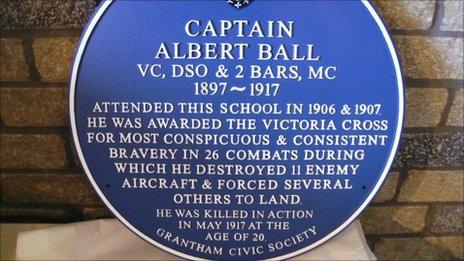Edith Smith: Blue plaque for WW1 woman police officer
- Published
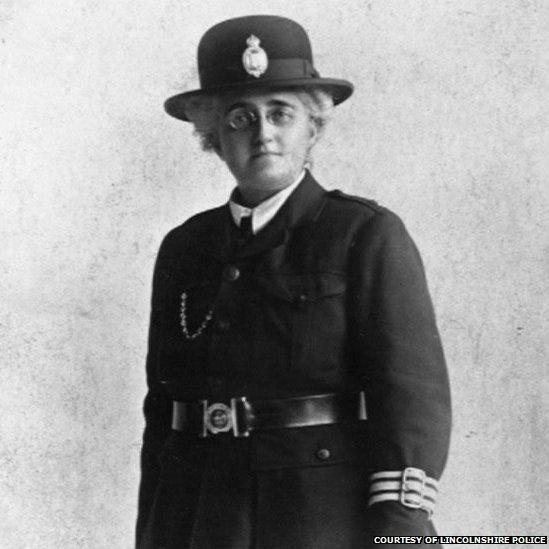
Edith Smith, who worked six days a week for two years, resigned from the force in 1918
A blue plaque honouring the first female police officer with the power of arrest has been unveiled in the Lincolnshire town where she worked.
Midwife Edith Smith came to Grantham in 1915 to help tackle prostitution after the billeting of 14,000 soldiers in the area during World War One.
She resigned from the force in 1918 and died five years later, having dealt with more than 380 incidents.
The plaque was placed on the wall of the old town police station.
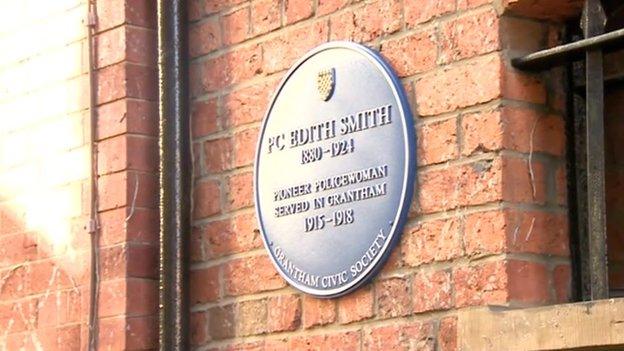
The plaque to commemorate PC Edith Smith's time as a police officer was unveiled in Grantham after a short ceremony
Lincolnshire Police's assistant chief constable Heather Roach, who unveiled the plaque, described Edith as "an absolute pioneer".
She said: "What she achieved was outstanding - she proved the absolute value of women within policing.
"Edith really got to know the girls in the neighbourhood and really understood them."

'Foolish girls'
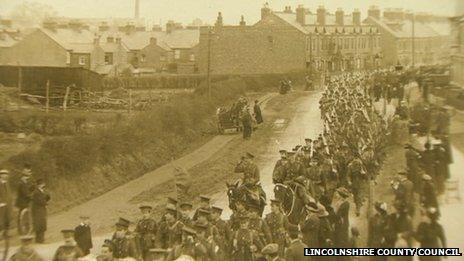
About 14,000 troops were stationed at Belton and Harrowby, near Grantham
Edith Smith worked as a midwife before taking up the police role, in which she served a community that saw a massive influx of trainee soldiers during WW1, and with them a influx of prostitutes from Nottingham, Derby and Leicester.
She wrote of her time in Grantham: "The appointment has made such a vast difference - the prostitutes have found that it does not pay and the frivolous girls have bowed down."
One report read: "Forty foolish girls warned, 20 prostitutes sent out of Grantham, two fallen girls helped, five bad women cautioned."
In 1916, PC Smith cautioned 100 wayward girls in larceny cases, 16 women and 15 girls were found to be drunk. Ten prostitutes were convicted, 10 were handed over to their parents and 50 were cautioned.

A spokesman for the Grantham Civic Society, which organised the plaque, said: "She worked for six days a week - she only had one day off and she got one weekend off every three months.
"If she didn't work because she was ill she lost a shilling."
He said despite Ms Smith's achievements "she seemed to have had a very unhappy life".
She resigned from the force in 1918 and died five years later.
Edith's story is told on the BBC 's World War One At Home website.
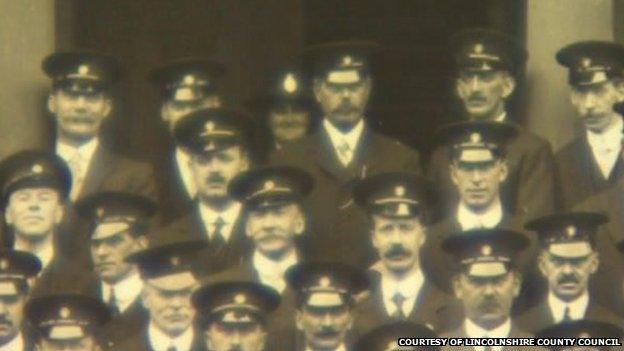
Edith Smith can just be seen at the back of this photograph
- Published17 July 2013

- Published18 May 2011
